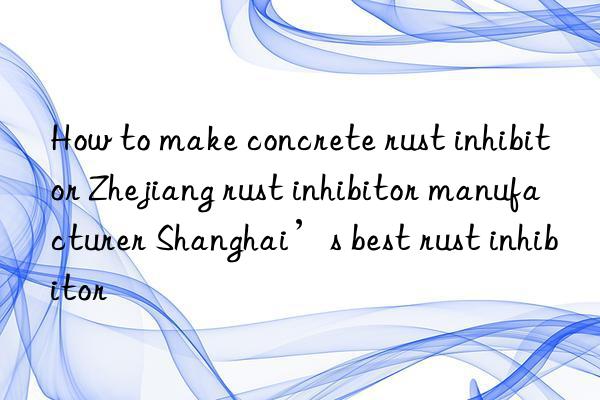
Coastal ports, salt fields and saline soil areas usually contain large amounts of sulfate and chloride salts, which have a serious corrosive effect on concrete and steel bars, causing the reinforced concrete structures in the area to suffer. Seriously damaged and unable to reach the expected service life of the structure. Therefore, the durability of reinforced concrete structures in the above erosion areas has become a worldwide concern. The existing traditional methods use sulfate-resistant cement or add a certain amount of mineral admixtures into concrete. However, sulfate-resistant cement is in limited supply and expensive. More importantly, sulfate-resistant cement has poor ability to prevent corrosion of steel bars caused by chlorine salts, which seriously affects the durability of reinforced concrete structures in corroded areas. The method of incorporating mineral admixtures can improve the hydration and compaction properties of cement and reduce salt corrosion stress. However, when the corrosive environment is moderately corrosive or strongly corrosive, this method alone cannot achieve good corrosion protection. To achieve the desired effect, anti-corrosion agents for salt corrosion must be added, not only to resist salt corrosion by improving the compactness of concrete, but also to prevent or delay sulfate and chloride salt corrosion based on the fundamental reaction mechanism. Improve concrete durability. </p

 微信扫一扫打赏
微信扫一扫打赏

